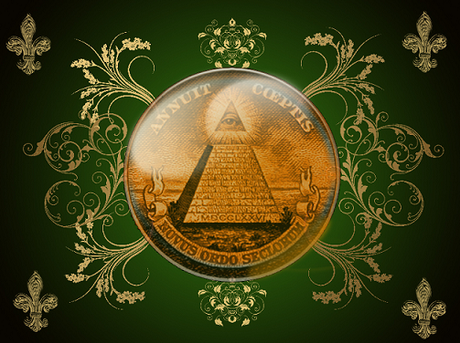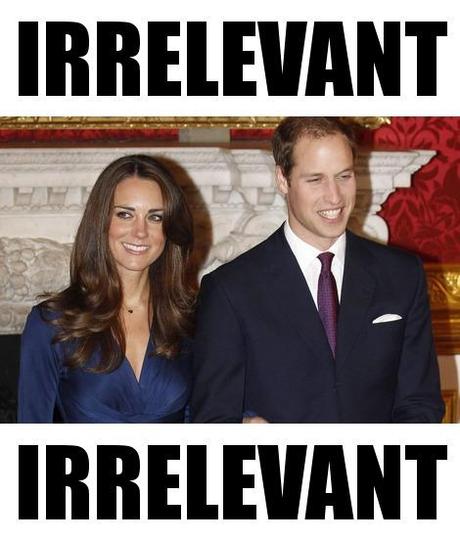 I sometimes wonder what system of government works best. Whether it be the current two party capitalist system we are living under now or a monarchism system throughout history. Through human civilization countries were ruled under a monarchism system and countries prospered and faltered. You cannot deny however that the monarchism is no longer what it once was and has now been deem irrelevant or obsolete. This made me put some thought on this subject.
I sometimes wonder what system of government works best. Whether it be the current two party capitalist system we are living under now or a monarchism system throughout history. Through human civilization countries were ruled under a monarchism system and countries prospered and faltered. You cannot deny however that the monarchism is no longer what it once was and has now been deem irrelevant or obsolete. This made me put some thought on this subject.
I would say more of just a natural development of society, taking the father being the head of the family to an end ruling over a tribe and then to a nation. No real benefits, besides tradition, I suppose. The same benefit could be attained if presidents or other heads of state were mostly distinguished generals instead of just career politicians. The Mannerheim of Finland comes to mind. Monarchy in the UK costs a pound a year to every citizen. The money they make from broadcast television rights from marriages and everyone of their events regarding royalty greatly outweighs the costs. Not only is it profitable, the fact that royalty have to “act decently” to avoid being overthrown and so their children have the right to be privileged as they are, makes them way more responsible than politicians who have nothing to fear. Hypothetically, monarchs might be more inclined to make long-term investments instead of short-sighted populist and useless decisions. Since monarchs won’t have to win an election every 4 years and since they are concerned with their legacies, their families will control the state in the future. The monarch has an incentive to not “overtax” so to speak, because he would be responsible for a revolution against him. But in a publicly owned government, that is not the case, because the costs of it are collectivized. In a monarchy, you can blame he king, but in democracy or any of its variants, you do not really know who to blame. Think of it this way, monarchies always work better in the long term. A monarch takes care of his country because it is his. He was born to rule it and will rule it his entire life. It is the inheritance the monarch will pass to his children. The wealth and security of the nation is directly related to the wealth and security of the monarch. Now an elected leader has no permanent ties to his country. He serves for his term and then after his term is over. For him, it doesn’t matter whether the nation prospers or suffers. There are no consequences for failure.
Originally the first tribal leaders who would later become kings had some sort of advantage. They were either great warriors or leaders so they had physical or mental advantages. Thus it made sense that these advantages would pass down genetically. Heirs would be trained and groomed for leadership so they would also become great leaders. However of course this system also suffered problems. Occasionally you would have genetic failures or heirs who were awful. Many the people suffered from beliefs like divine kingship. For some it just stopped being a duty and become a right. Many of these heirs would become despots and tyrants. The problem was that these heirs became bratty privileged teens who believe they have lots of rights to things instead of working towards them. And when there is no decent figure to talk them down you have a terrible reign until the next good one.

In an ideal world, a monarchy would be the most effective system of government. A monarch should be one who embodies in the purest form possible the aggregate national spirit of the population. For example take Napoleon in the revolutionary and post-revolutionary France, before he was overcome by his arrogance following his glorious victories. When immersed in a cabinet and parliament of representatives, the monarch gains insight into arguments from people of varying viewpoints, but the monarch s the one who makes the final decision.
Now don’t think about systems of government as better or worse. They’re only better or worse at different issues. Take a republic, for instance, would have been a weak construct in the cutthroat environment in which feudalism prospered. What you get with monarchy is a complete executive power and responsibility. In a sense this ties the fate of the monarch and his family to the success of the state, which is why they chose to play power off as some burden or right. The problem is this comes out of a violent and competitive time, in which the power structure was faced with existential threats. About the offspring issue, the problem isn’t bad offspring, the problem is when those with a vested interest in the system can afford to let bad offspring run the show. The advantage is that, unlike a republic, the people with a force monopoly cannot have a vested interest in the failure of the state, as they are the state themselves.

